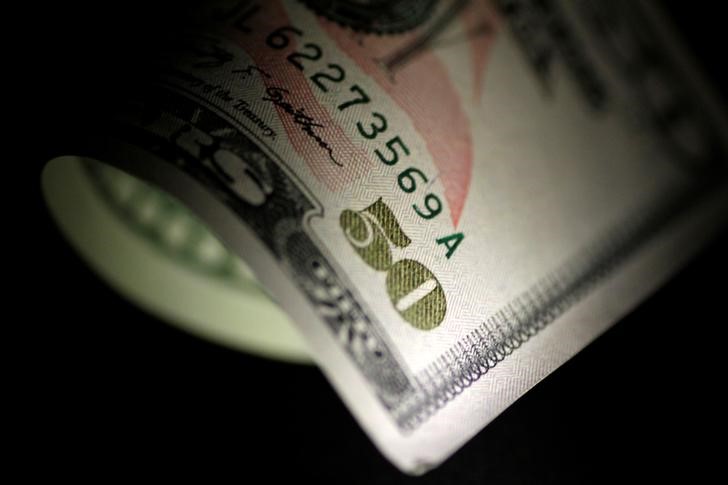By Peter Nurse
Investing.com - The U.S. dollar stabilized at lower levels in early European trading Tuesday as traders factored in a potentially less hawkish Federal Reserve, while sterling benefited from the increased risk sentiment as Rishi Sunak prepares to become Britain's new prime minister.
At 02:55 ET (06:55 GMT), the Dollar Index, which tracks the greenback against a basket of six other currencies, edged higher to 111.980, close to Friday's low of 111.70, the weakest since Oct. 6.
The dollar retreated on Monday after the October S&P Global Composite PMI release showed U.S. business activity contracting for a fourth straight month, an indication that the Fed's aggressive monetary tightening was having a significant impact.
This played into the idea that the central bank policymakers were having second thoughts about the extent of future rate hikes after November's expected 75 basis point increase.
The Wall Street Journal reported late last week that the pace of further rate hikes after November's lift will be less clear, citing sources familiar with the Fed's thinking.
Elsewhere, GBP/USD rose 0.1% to 1.1286 with Rishi Sunak set to become Britain's next leader later Tuesday, after he beat ex-prime minister Boris Johnson and Penny Mordaunt in a race to become head of the ruling Conservative Party.
Sunak has a large in-tray to handle, with high inflation squeezing government budgets and the Bank of England predicting a recession by the end of the year.
However, the fact he vocally opposed outgoing Prime Minister Liz Truss's plans for huge unfunded tax cuts means he has a degree of credibility within the markets. How long this lasts may depend on the combination of tax rises and politically realistic spending restraint he, along with his chancellor, agrees to.
EUR/USD slipped 0.2% to 0.9856 ahead of the release of the latest guide to business sentiment in the German economy, the largest and most important in the Eurozone.
The German Ifo business climate indicator is expected to fall to 83.3 in October, from 84.3, as high energy prices continue to weigh, likely dragging the German economy into recession next year.
USD/JPY edged higher to 148.99, with traders still on intervention watch following suspected Bank of Japan intercession on Friday and Monday.
"The BoJ meets to set monetary policy this Friday and unless we see a shift in its ultra-dovish outlook (a negative policy rate and ongoing quantitative easing) it seems hard to expect a top in USD/JPY anytime soon," said analysts at ING, in a note.
AUD/USD rose 0.3% to 0.6328, NZD/USD rose 0.3% to 0.5708, helped by the rising risk sentiment, while USD/CNY rose 0.6% to 7.3070, with the yuan falling to hit its weakest level in nearly 15 years on growing concerns that the country's new political leadership could jeopardize economic growth with anti-business policies.
